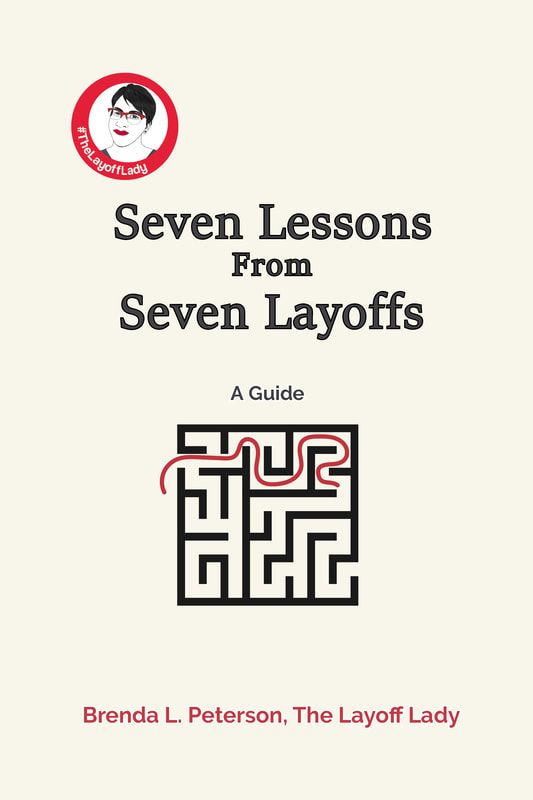|
By Brenda L. Peterson, The Layoff Lady A Resume for Each Job? Won't That Take Forever?When applying for jobs, customizing each resume is one way to help you stand out. Unfortunately, it’s easy to spend a lot of time and effort updating your resume. Let's look at shortcuts for customizing your resume that is less time and labor-intensive. Articulate What You WantRemember, when you're at the point when you're applying for jobs, you should have already done some prework. By now, you should know what specifically you're looking for in a job. This includes details like your target job title(s), industries, core work responsibilities, geographic location, day-to-day responsibilities, pay rate, and work arrangements (onsite, remote, hybrid). If you don't have a clear idea of what your target job looks like, it makes everything else harder. I encourage you to take a moment to figure out what your target is. This act will help you be more efficient as you search for a role, decide what to apply for, create your target job resume, and everything after that, too. For me, in a previous job search, here is how that looked:
Create a Target Job ResumeTo start, create a target job resume. You could also share this resume with those people who say, "Can you send me your resume?" who may not have a specific job description to share. This resume should be a solid representation of your skills, the type of work you do, and the unique value you would bring to the role. Your target job resume should also include keywords commonly appearing in job descriptions for the type of work you do. To be clear, this IS NOT the resume you use to submit whenever you apply for a job. Instead, this is the resume you customize just a bit for each job for which you apply. Let's look at what to include so you have a robust resume that you'll only need to customize in a few ways for each role. Target Job Resume: Professional Summary SectionYour resume should start with a professional summary section. The goal of this summary is to let the reader know if it's worth reading further. This summary is comprised of a few sentences that summarize who you are, what drives you, and how those factors align with the available role. This is also an opportunity to highlight important keywords that will resonate with employers. Here is the Professional Summary in my target job resume: Proactive learning consultant driven to help organizations succeed. Thrives when partnering with leaders and stakeholders to improve performance. Able to think strategically and execute tactically while managing multiple projects. Committed to constant learning, continuous improvement, and delivering training that drives results. Target Job Resume: Relevant Skills SectionLook at your list of terms included in job descriptions that interest you. Prioritize the ones that you really want the hiring team to know about. Include those in a Relevant Skills section near the top of your resume. Limit what you include to a couple of lines. Here are key skills that I seem the most generally relevant: Here are keywords I included in my Relevant Skills section: Blended Learning, Coaching, Collaboration, Communications, Consulting, Facilitation, Instructional Design, Needs Analysis, Onboarding, Project Management, Relationship Building, Strategy, Video Production Target Job Resume: Work Experience DetailsFor each role, I include bulleted points describing responsibilities common to people who do this work. This includes a wider variety of keywords to help even the least experienced recruiter see the tie between what I describe and the words used in many job descriptions. Here are examples of bulleted points under job descriptions that include keywords relevant to my skills:
The words in bold are keywords pulled from relevant job descriptions. Customizing a Resume: Save AsFirst, I pull up my target job resume file in a word processing file format. Then, I save a copy of my job-specific resume using the following naming convention: [My name] Resume, [Job Title] with [Company name]. For a Lead Learning Consultant role for ABC Inc, the name would look like this: Brenda L. Peterson Resume, Lead Learning Consultant with ABC Inc Now, I'll edit this new resume so it aligns more directly to the job for which I'm applying. Customized Resume: Professional Summary SectionNow, I will customize the Professional Summary Section to align with the language used in the Lead Learning Consultant role. Remember, here is my Professional Summary in my target job resume: Proactive learning consultant driven to help organizations succeed. Thrives when partnering with leaders and stakeholders to improve performance. Able to think strategically and execute tactically while managing multiple projects. Committed to constant learning, continuous improvement, and delivering training that drives results. Here is the Professional Summary for this Lead Learning Consultant role: High-performing lead learning consultant who thrives when delivering engaging employee performance solutions. Thrives when partnering with internal and external stakeholders to design innovative talent management programs. Able to think strategically and execute tactically while managing multiple projects. Committed to constant learning, continuous improvement, and delivering talent initiatives that drive engagement. The sentiment is similar, but now I'm conveying my value add using the employer’s words to describe this position. Note the bolded words were pulled directly from the job description. Customized Resume: Relevant Skills SectionNow, I will customize the Relevant Skills Section to align with language used in the Lead Learning Consultant role. Remember, here is the Relevant Skills section in my target job resume: Blended Learning, Coaching, Collaboration, Communications, Consulting, Facilitation, Instructional Design, Needs Analysis, Onboarding, Project Management, Relationship Building, Strategy, Video Production Here is the Relevant Skills section for the Lead Learning Consultant role: Blended Learning Solutions, Employee Coaching, Collaboration, Communication Skills, Consulting, Facilitation, Curriculum Design, New Hire Onboarding, Project Management, Relationship Building, Strategy, Talent Management Programs To mirror language the company used, I added "solutions" to blended learning, changed "instructional" to "curriculum", and added a few terms emphasized in the job description to this list. Realize these skills are also included in bulleted points for each role. This is just another opportunity to help the recruiter align the skills needed with the words listed in the job description. What Do You Think?Do you customize a resume for each role? What are your tips, tricks, and strategies? Include your thoughts in the comments. Learn More
0 Comments
By Brenda L. Peterson, The Layoff Lady Job Search ChallengesWhen you're looking for a new role, there is a lot to do to help move your job search along. Getting your resume where you want it to be, tracking application progress, and scheduling meetings with others can take a lot of time and effort. Here are three excellent tools to help manage, streamline, and optimize your job search. The tools mentioned here all have a robust set of features in the free version with the option to pay for additional functionality. I'll focus on currently available features included as a part of the free version. Links for each tool are included in the "Learn More" section. Teal: Tracking Applications and Resume UpdatingTeal is helpful in multiple aspects of my job search. Teal enables me to save jobs of interest, evaluate highlighted qualifications, and track my application progress with roles. Here is how I use Teal in my job search:
Teal continues to evolve and add new features--and offers much more than I currently use. This is the cornerstone of how I track my current job-searching activities. Calendly: Managing Meeting SchedulingMeeting with people during your job search can be very valuable. Whether you're meeting to learn more about a company, find out what tasks one does in a given line of work, or catch up with a former corworker, streamlining your scheduling process is a big timesaver. Enter Calendly. You can create a Calendly account, add your personal branding, and add language to describe yourself and what you want. You can also link Calendly with your Google Calendar and your webinar account (like Zoom or Google Meetup). Without paying an additional cost, you can select one free meeting type. I use the half-hour meeting, and I call mine "Virtual Coffee." It’s also helpful because our meeting can last as long as it needs to last (beyond that specified half hour) with no issues. Within Calendly, you can set up your available days and times, choose how far out in the future people can schedule a meeting with you, and even decide how many meetings you are open to having on a given day. In addition, you can select the mode of the meeting (phone or online) and include a few questions to help clarify the goals of the meeting. Here is how I use Calendly in my job search:
Calendly automates key components of scheduling. With a minor setup on the front end, I can spend less time finding a meeting time and more time on other valuable job searching and networking tasks. Grammarly: Clarifying Your CommunicationsYour job search is all about communicating your value to hiring managers and recruiters. Ensuring your writing is clear and correct is essential to demonstrate your professional value and credibility. Enter my new best friend, Grammarly. This spelling and grammar checker goes above and beyond what you may already have in word processing or email platforms. I run any communication I will put in front of job-searching influencers through Grammarly. Here is how I use Calendly in my job search:
Even this English major appreciates having Grammarly as a second set of eyes (or, in this case, AI) to polish my writing. Learn MoreBy Brenda L. Peterson, The Layoff Lady Learning About YourselfWhether you’re considering making a career change, are currently in the midst of a job transition, or want to be more effective in your role, increasing your self-knowledge is a great place to start. A Good Starting Point: Values and StrengthsIn other articles here on The Layoff Lady, I’ve outlined ideas for exploring your values and discovering your strengths. Knowing more about what you truly value and what you are good at will help you think about the why, what, and how of the type of work you are driven to do. Reflecting on your findings will also help you have better conversations about your skillset and what motivates you personally and professionally. A Solid Next Step: Discovering Your Saboteurs It’s incredible how our strengths and values also show up when we are in challenging situations—often in good ways, but sometimes in more destructive ways. Learning about how you can get in your own way is a valuable strategy for making better decisions when you’re mid-crisis. Enter Shirzad Chamine. He is a professor, professional coach, and the author of the best-selling book Positive Intelligence. He introduces strategies for how to be mindful of what we know (IQ) our overall emotional intelligence (EQ), and how to leverage our positive intelligence (abbreviated as PQ). The end result is learning to be more effective and increase our overall. Nine Ways We Self SabotageHere arer the nine saboteurs outlind in Positive Intelligence listed in alphabetical order along with my brief description of each:
Yikes. We're certanly not our best selves when we show up this way. Let's look at how you can identify your saboteurs and use that information to improve how you show up. About The Assessment To Find Your Top SaboteursSet aside time to take the 9 Ways We Self Sabatoge Assessment from Positive Intelligence. The assessment takes 5-10 minutes to complete. In addition, I suggest giving yourself 30-45 minutes to review your results and reflect. This assessment consists of 45 questions. Each question includes of a statement, and you'll rate your agreement with that statement on a 5-point scale ranging from strongly agree to strongly disagree. The directions encourage you to answer each question relatively quickly and go with your initial response. The final 7 questions are about demographics and finding out where they will send your assessment results. Your Assessment ResultsThe results you receive include a ranking of your top sabateurs and your score for each. In addition, you will receive the following information about each of your saboteurs:
Reviewing Your ResultsI find these types of assessments fascinating. As someone who is committed to ongoing professional development, I appreciate getting insights that might be hard for someone else to share. These insights are valuable, and also help me understand why I do what I’m doing as well as helping me to recognize those non-helpful patterns so I can adjust my approach going forward. Not at all surprising to me, my top three saboteurs are as follows:
My Initial Reflections On My ResultsHere were my initial thoughts as I saw my top three identified saboteurs:
My Additional Reflections On My ResultsUnder Controller, here are a few statements resonated with me from the details included within my report:
Reflecting on Your Results
Learn More
By Brenda L. Peterson, The Layoff Lady Your Salary RequirementsMost of us work so we can pay for our lives. When you are job searching, it’s important to determine your target salary range to make your job search more effective. Having this information will help you prioritize which jobs to apply for and help you have those early salary conversations. Let’s look at a few strategies for answering the question, “What are your salary requirements?” Start With Your Target RolesFirst, ensure you’ve done the requisite amount of soul-searching to determine what you want to be next in your career. Have a list of what you want to do, possible job titles, relevant skills, core responsibilities, daily activities, focus areas, types of companies, and industries. Having these details on your desired job will help as you start to do salary research. The DisclaimerWhile I feel comfortable discussing various financial and insurance concepts, I do not currently hold a license or any certification that deems me inherently qualified to give financial advice. The information provided here is intended to be used for educational purposes only. Sometimes, the core challenge is knowing how a system generally works, the terms used to describe what you’re asking about, and where to go for additional help. My goal for this article is to share information to guide you as you navigate the murky waters of job searching. I hope my personal experiences can help you cut a path through the wilderness as you try to figure out your next steps. Feel free to take my recommendations or not. Whatever you do, double-check my facts--and everyone's purported facts, for that matter. This is your life, and you will care more about your financial and healthcare decisions than anyone else. Use this information as a starting point for further research as you ultimately decide what’s right for you. Identify Your PrioritiesNow that you understand your target job and what that looks like, think about what you value in a job. For example, some may prioritize having a specific job title, receiving tuition reimbursement money to earn their next credential, and opportunities for a promotion within the company. Another person may prioritize having interesting work while also having schedule flexibility, the ability to work remotely most days, and low health insurance premiums. Still another person may prioritize alongside colleagues in an office, having the opportunity to mentor new employees, and finding a job they can keep for the next 20 years. Think about what is the most important to you. In addition, think about what you value in an employer. Working for a non-profit, government entity, start-up, family business, or Fortune 500 company will have salary, benefit, job security, and total compensation-related implications. Overall, think about what matters to you, and be aware of the salaries that align with your overall job preferences. Factors That Influence Your Target Salary RangeWhen considering your salary requirements, I suggest using a range instead of one specific number. Let’s look at strategies for determining your target salary range. Here are numbers you might have in mind that could impact your range:
I suggest the salary range you share with potential employers includes the lower number that is the minum salary you would happily accept and the maximum number is what you'd be really excited about. What Companies Are PayingKnowing what companies are paying for what you do should also factor in to your target salary range. Here are a few strategies for finding out more: Search For Openings in Pay Transparency StatesTake these steps to find out what open positions are paying:
Research Your Job Title and Geographic LocationMany websites have salary information. Two that come highly recommended by recruiters are Salary.com and Payscale.com. In fact, Salary.com has a Know Your Worth calculator where you can add details like your job title, location, education level, and years of experience and see the impact each factor has on your potential market value. Ask AroundFind out from other job searchers, recruiters, and hiring managers what salaries companies are paying for specific roles. You can also inquire with professional development organizations to see if there are industry or job-specific studies available that include salary-related information. Confounding FactorsHere are a few factors that might make this process challenging:
Learn More
|

Just get laid off?
Click here for info on what to do first. Author7-time layoff survivor Brenda L. Peterson, The Layoff Lady, waxes poetic on layoffs, job transitions, & career resilience. Buy The Book!Were you recently laid off from your job and need a roadmap for what's next? Pick up a copy of my book, Seven Lessons From Seven Layoffs: A Guide!
Categories
All
Archives
July 2024
|










